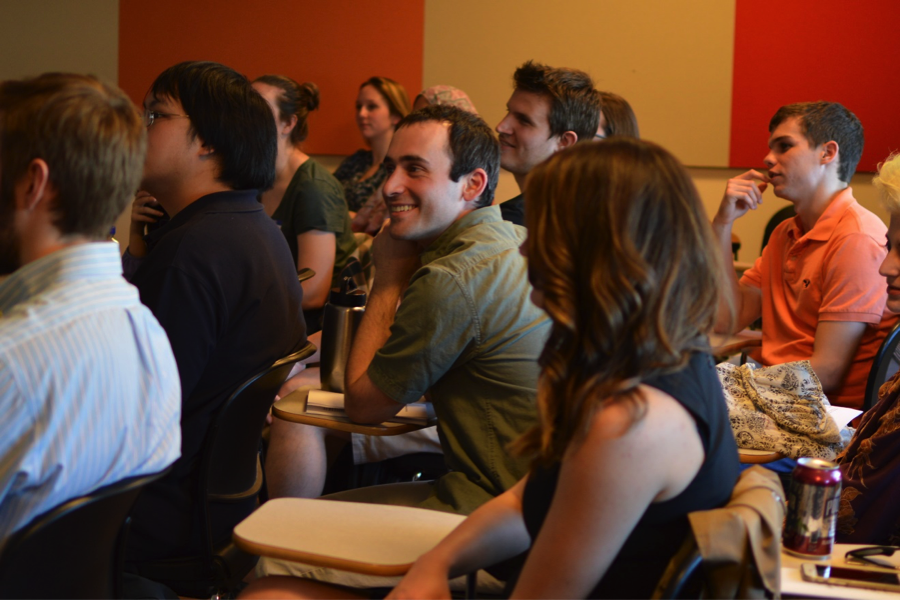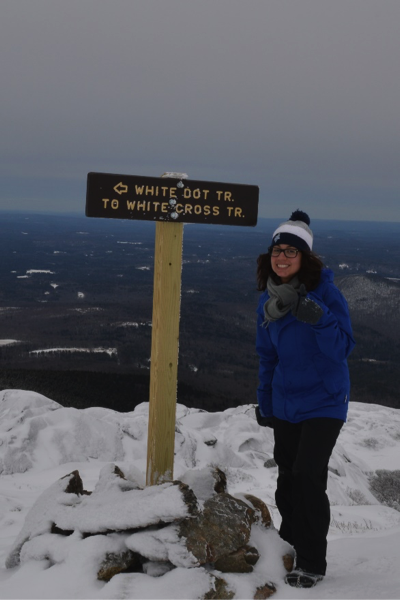How I beat my inner sloth during self-quarantine
Written by Ebru Ece Gulsan, Ph.D. student in Chemical Engineering
I bet none of us imagined the rest of the semester going like this after Spring Break. We are slowly transitioning to distance learning and a home office routine not only as a community, but also as students from around the globe. Although staying at home gives us some extra time for our hobbies and self-care, eliminates our commute time, and maybe saves us some money, it could also hinder our productivity and motivation to maintain our routine.
Personally, I always need to be in an office, library or a coffee shop to get things done. Knowing that I’m 5 steps away from my bed and there are tons of snacks in the fridge is never helpful. I am sure other Jumbos are on the same page, so I wanted to share some useful apps that I use to keep myself on track, no matter how inclined I am to procrastinate at home. These apps are not only for your daily tasks like research or homework, but also for other productive activities like reading or exercising.
Having said that, you do NOT have to be productive ALL THE TIME. If you are failing to make the most of your time at home, this does not mean that you are not self-compassionate. Please do not feel pressured by the fact that Shakespeare wrote “King Lear” in quarantine, while you might have had cereal for breakfast, lunch, and dinner yesterday because you couldn’t bring yourself to cook. Everything is upside down now and you get to define what success is for you.
Be gentle to yourself, make time for your hobbies, relax, and do not forget to call your loved ones. In the meanwhile, there is no harm sharing what helps you stay organized during this time.
An all-in-one workspace for your notes

Notion provides you a workspace you can access through all your devices. This is by far my favorite productivity and organizational tool I have used. You can create and keep track of to-do lists, tasks, projects, notes, and ideas, and even enrich them with media, icons, webpages, publications, or any other useful reference you can imagine. The best thing is that when you add references to your lists, you have the chance of accessing them even if you are not online. It is also possible to share your lists and collaborate with other Notion users. The app operates on nested pages which saves us from messy folder organizations. Overall, for me Notion is a very versatile, smooth, user friendly and useful app that helps with my routine (and is free!).
Journaling App
Having weekly or daily to-do lists is great for productivity; but for me documenting long term goals and my progress towards those is key to staying motivated. Day One is an excellent journaling app not only for tasks and projects, but also for personal growth. It provides you a safe digital space to store your memories, thoughts and dreams, either with pictures or words.
Set Yourself a Reading Challenge
Is there a better time than a stay-home period to finish those books you had started months ago but have not had time to get back to? In theory, yes! But in practice, not really. I don’t know if it is just me, but I find it very difficult sometimes to reach to that book sitting on my nightstand although I have all the time in the world.
This app is such a life saver; you can use Goodreads to set a “reading challenge” and keep track of your progress. The app also sends you notifications and reminders to motivate you to get back on track. You can see what your friends are reading, where they are at their own challenge, how they felt about their books, what they want to read next. The app will also use an algorithm to give you recommendations for your tastes and interests over time, which motivates you even more to finish that book and start those new excellent recommendations.
Track Your Workouts
It is especially difficult for folks in Boston to stay home all day, considering the year-round 5 AM runners all around the city. I love being active, and have been lucky enough to have access to excellent athletic facilities provided by Tufts. I have been using the Strong app to keep track of my exercises, make customized workout routines, and record my progress. The additional benefit of Strong is that it allows the user to define details about their workouts.
You do not have to be outside to be active! There are plenty of exercises and reasonably priced weights to purchase online. My personal favorites are resistance bands, a kettlebell (preferably on the heavier side to use for full body exercises which engage bigger muscle groups, mine is around 20 pounds for reference) and dumbbells. They last a lifetime, are compact and easy to store. For inspiration, YouTube has some excellent free channels to safely guide you through creating your home exercise routine, and many yoga studios also started live streaming for their clients.

Please do not forget that this is stressful time for all of us, but we are doing our best. Extend some grace to yourself and appreciate how we adjust ourselves to a situation which seemed unimaginable a few weeks ago. The most helpful approach I took during this transition was to treat the day as a regular day in my office. I woke up early and got ready for the day, had my gear together, set up a workplace, and most importantly, I set boundaries for my work hours and leisure hours. But there were also days I did not get any work done, which I learned to be okay with.
So, do not overwhelm yourself and find what works for you. Stay in touch with your co-workers, classmates, and principal investigator. Organize get-togethers with that friend who you studied abroad with, who you never get a chance to FaceTime anymore. Call your parents. Treat yourself with some self-care. Most importantly, be gentle to yourself and to your loved ones.



